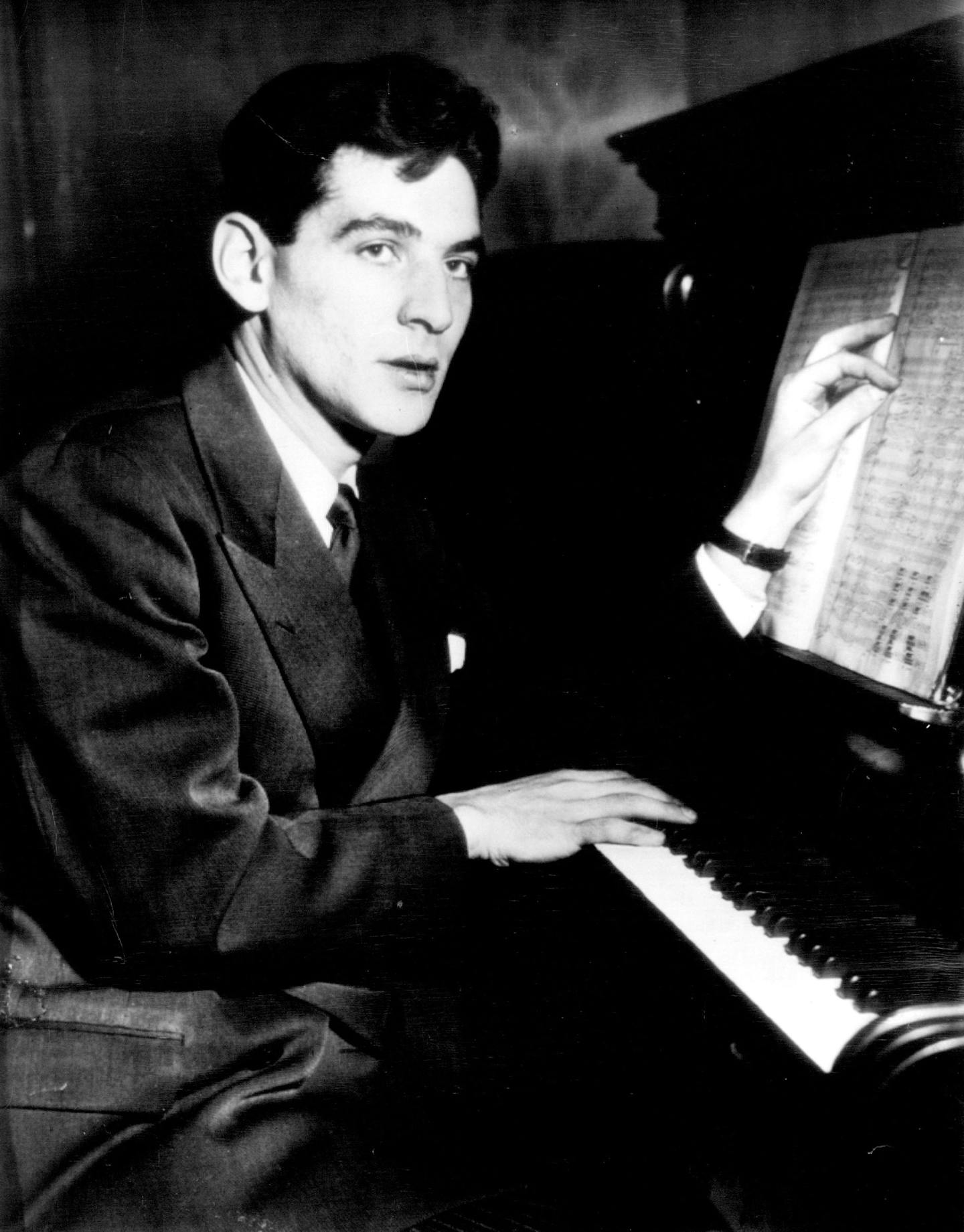Listen and subscribe to our podcast: Apple Podcasts | Spotify
The recent Leonard Bernstein biopic "Maestro" makes no mention of Minnesota. But maybe it should have.
Before the famed conductor and composer led the New York Philharmonic or wrote the music for "West Side Story," Bernstein had a brush with the Minneapolis Symphony Orchestra (now the Minnesota Orchestra). It was through his mentor, Dimitri Mitropoulos, the music director who put the orchestra on the cultural map.
A Star Tribune reader wanted to know: Is it true that Bernstein was once being considered for associate conductor of the Minneapolis Symphony, but was "rejected by the musicians union because he wasn't local"? They sought answers from Curious Minnesota, the Star Tribune's reader-generated reporting project.
The answer, based on books and letters, is yes. Mitropoulos, a giant of the Minneapolis Symphony, did indeed intend to hire Bernstein — then a music student and promising pianist — if not to be an associate conductor, then to be his assistant.
But Mitropoulos told his young mentee that he couldn't get the approvals. It was a miss for Minnesota, perhaps, but a moment that helped lead to Bernstein's breakthrough.
Still, the pair's relationship would shape their musical lives in meaningful, surprising ways.
"Bernstein would become Mitropoulos's protégé, many years later his colleague and rival, and eventually his betrayer," Mitropoulos biographer William R. Trotter wrote in "Priest of Music: The Life of Dimitri Mitropoulos."
Beginnings in Boston
The story begins in Massachusetts, where Bernstein was attending Harvard University in the 1930s. He met Mitropoulos at a party in winter 1937, when Mitropoulos was in town to guest conduct the Boston Symphony. Mitropoulos invited Bernstein to rehearsal.
It was Bernstein's "first experience of observing an orchestral conductor at close range," according to the book, "The Historical Dictionary of Leonard Bernstein." And it changed him.
"For the young Bernstein ... the 1937 encounter was an emotional earthquake," according to "Priest of Music."
The bisexual Bernstein was 19, half the age of the gay Greek conductor known for his metaphysical relationship to music. A year later, Bernstein wrote "a thinly fictionalized account" of the event for his English class, eventually publishing the tale as part of his book "Findings." Many details, Trotter wrote, were corroborated by Bernstein's longtime friends.
In the story, the protagonist Carl Fevrier, a pianist, noted star conductor Eros Mavro's "wide, full mouth ... strong nose ... a disarming gentleness in the small blue eyes." After attending one of his rehearsals, the pair dined together. Mavro offered Fevrier an oyster from his own fork. Fevrier "nearly fainted."
Days after their fateful meeting, Mitropoulos was named music director of the Minneapolis Symphony, bringing "brilliant" conducting to the "snow-crusted" city, according to Time magazine. At one point, he wanted to bring Bernstein there, too.
Mitropoulos sent Bernstein a train ticket to Minneapolis, and they spent time together in the city. During that visit, he offered Bernstein a job:
"[Bernstein] would play piano parts ... he would attend all rehearsals, run errands, and be Mitropoulos's understudy if accident or illness prevented the older musician from conducting," according to "Priest of Music."
'Up against a strong machine'
But in April 1940, Bernstein received a telegram from Mitropoulos that began: "DON'T LEAVE YOUR CLASS FOR NEXT SEASON."
A young Bernstein wrote a friend, despairing: "April is the cruelest month. I received a wire from Dimitri that knocks my world completely to hell ..."
"The prospect of next year ... was for me the one, single motive of my activity ... every move, every note studied, person loved, hope ignored, was a direct preparation for next year," he wrote, according "Priest of Music." "From the scores I chose to study, to the sexual life which I have abandoned — all."
Mitropoulos had offered Bernstein the assistant's job "only to learn later that union rules forbade the hiring of anyone not from Minnesota for any administrative job," the biography continues. Nor would the board of directors let Mitropoulos hire "an untried student who had no experience in the day-to-day running of a large professional orchestra."
Bernstein wrote back the same friend, saying, "Dimitri is no false promiser. ... He's simply up against a strong machine."
Had he come to Minnesota, Bernstein might have missed out on the opportunity that launched him to fame. In 1943, at age 25, he stepped in for the New York Philharmonic's ailing conductor, performing without a rehearsal — a key moment in "Maestro." Bernstein's adept performance landed the "dramatic musical event" on the front page of the New York Times.
At Mitropoulos' invitation, Bernstein conducted the Minneapolis Symphony twice, in 1945 and 1947. The critics raved.
Bernstein's reading of Shostakovich's Fifth Symphony "set an ideal at which other Shostakovich performances may aim," critic Robert Smith wrote in the Minneapolis Star. "But here's one prediction that we won't hear such Shostakovich again until we hear Bernstein again."
A strong bond
"Maestro" spotlights Bernstein's private life, including his complex, decadeslong marriage to Felicia Montealegre Cohn Bernstein and friendships with men like composer Aaron Copland.
The film never mentions Mitropoulos, but biographers have long debated the nature of the two conductors' relationship, as the record is unclear. (Some have argued that Mitropoulos, who never married and whose sexuality was used against him, encouraged Bernstein to wed.)
In "Priest of Music," composer David Diamond refuted the notion that the two were ever lovers.
"That story gained momentum because the homosexual community wanted it to be so for one set of reasons and the heterosexual musicians wanted it to be so for totally different reasons," Diamond said, according to the book. "They did not sleep together, and I'll tell you why: Lenny was not Dimitri's type, and Dimitri was not Lenny's."
Nonetheless, the two men formed a strong bond.
"Mitropoulos's influence was all-pervasive," said Norman Lebrecht, author of "The Maestro Myth" and owner of the classical music blog Slipped Disc. "The calisthenics that Lenny performed in the podium was drawn directly from his mentor."
The older conductor was also "very likely the one who introduced Lenny to Mahler," Lebrecht said. Mitropoulos made the world's first recording of Gustav Mahler's first symphony in Minneapolis in 1940. But it was Bernstein who would become known as "the man who invented Mahler," as the Los Angeles Times declared in 1993.
Mitropoulos supported Bernstein financially when he was studying at the Curtis Institute of Music in Philadelphia. Later, he gave Bernstein moral support when the Boston Symphony Orchestra turned him down, Lebrecht said, and when the U.S. government confiscated his passport, stifling his international career.
"The absence of Mitropoulos from the 'Maestro' film was a major flaw in the story," he said.
Even as Bernstein became a more prominent composer, Mitropoulos never conducted one of his works in Minneapolis or with the New York Philharmonic, which he led starting in 1949 after 12 years in Minnesota. That was "a fairly glaring omission considering the Greek conductor's many performances of ... other Americans of Bernstein's generation," Trotter noted.
"In a cruel irony, it was Bernstein who eventually succeeded Mitropoulos as music director of the New York Philharmonic," music writer Terry Blain wrote in 2019, "when the Greek conductor was ousted by a cabal of unsympathetic critics and uncooperative players — a process in which Bernstein was rumored to have participated."
Mitropoulos died not long after that ouster. At age 64, during a rehearsal of Mahler's Third Symphony, Mitropoulos had a heart attack, falling from the podium.
"You know, it's very strange," Bernstein told a biographer, "that in my conducting, I'm always compared to Koussevitzky or Reiner. But nobody ever realizes how much of it is Dimitri — deep, deep — because it was the first conducting I ever watched carefully and listened to carefully."
If you'd like to submit a Curious Minnesota question, fill out the form below:
Read more Curious Minnesota stories:
Why do Minnesotans have accents?
How safe is it, really, to walk on the iced over lakes in Minnesota?
What is the oldest building in Minnesota?
Why are there so many stucco homes in the Twin Cities?







